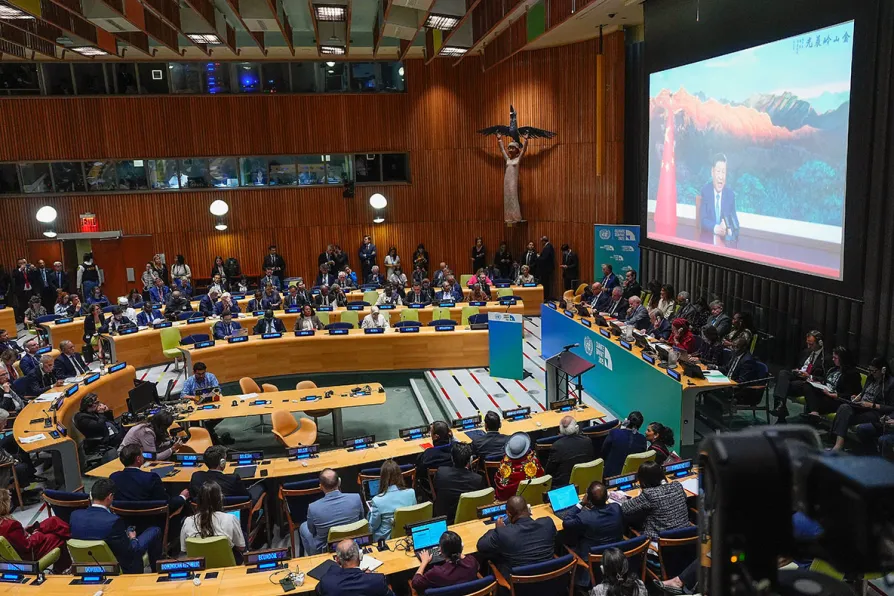
 Chinese President Xi Jinping virtually addresses a climate summit, September 24, 2025, at UN headquarters
Chinese President Xi Jinping virtually addresses a climate summit, September 24, 2025, at UN headquarters
CHINA’S President Xi Jinping announced today a target of cutting carbon emissions by 7-10 per cent by 2035.
China produces more than 31 per cent of the world’s carbon dioxide emissions, but emissions fell by 1.6 per cent in the first quarter of this year, leading to hopes that they have peaked in the world’s biggest manufacturing economy.
The announcement from the Chinese leader came as more than 100 world leaders gathered to speed up efforts to curb the spewing of heat-trapping gases into the atmosphere.
With major international climate negotiations in Brazil just over six weeks away, UN secretary-general Antonio Guterres convened a special leaders’ summit today during the general assembly to focus on specific plans to curb emissions.
In a video address, President Xi pledged that China would increase its wind and solar power sixfold from 2020 levels, make pollution-free vehicles mainstream and “basically establish a climate adaptive society.”
He said: “While some countries are acting against it, the international community should stay focused on the right direction.”
UN climate chief Simon Stiell said that the Chinese plan “is a clear signal that the future global economy will run on clean energy.
“And that for every country, stronger and faster climate action means more economic growth, jobs, affordable and secure energy, cleaner air, and better health, for all of us, everywhere.”
Brazilian President Luiz Inacio Lula da Silva, who is hosting November’s climate conference, said: “No-one is safe from the effect of climate change. Walls at borders will not stop droughts or storms. Nature does not bow down to bombs or warships.”
Pakistani Prime Minister Muhammad Shehbaz Sharif said his country knows this all too well, with recent floods hitting 5 million people across over 4,000 villages, killing more than 1,000.
He said: “We are facing this calamity at a time when the scars of the 2022 floods that inflicted losses exceeding $30 billion (£22.3 billion) and displaced millions are still visible across our land.”










